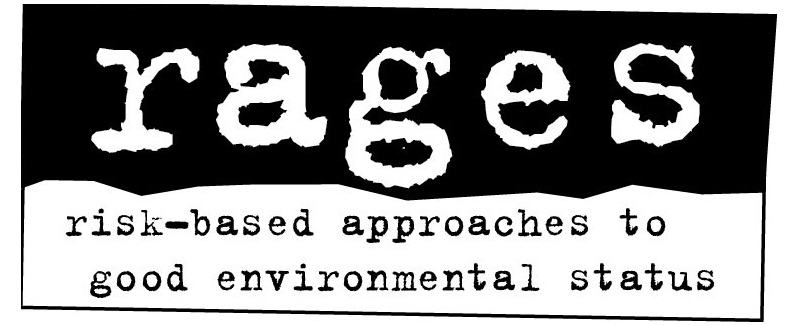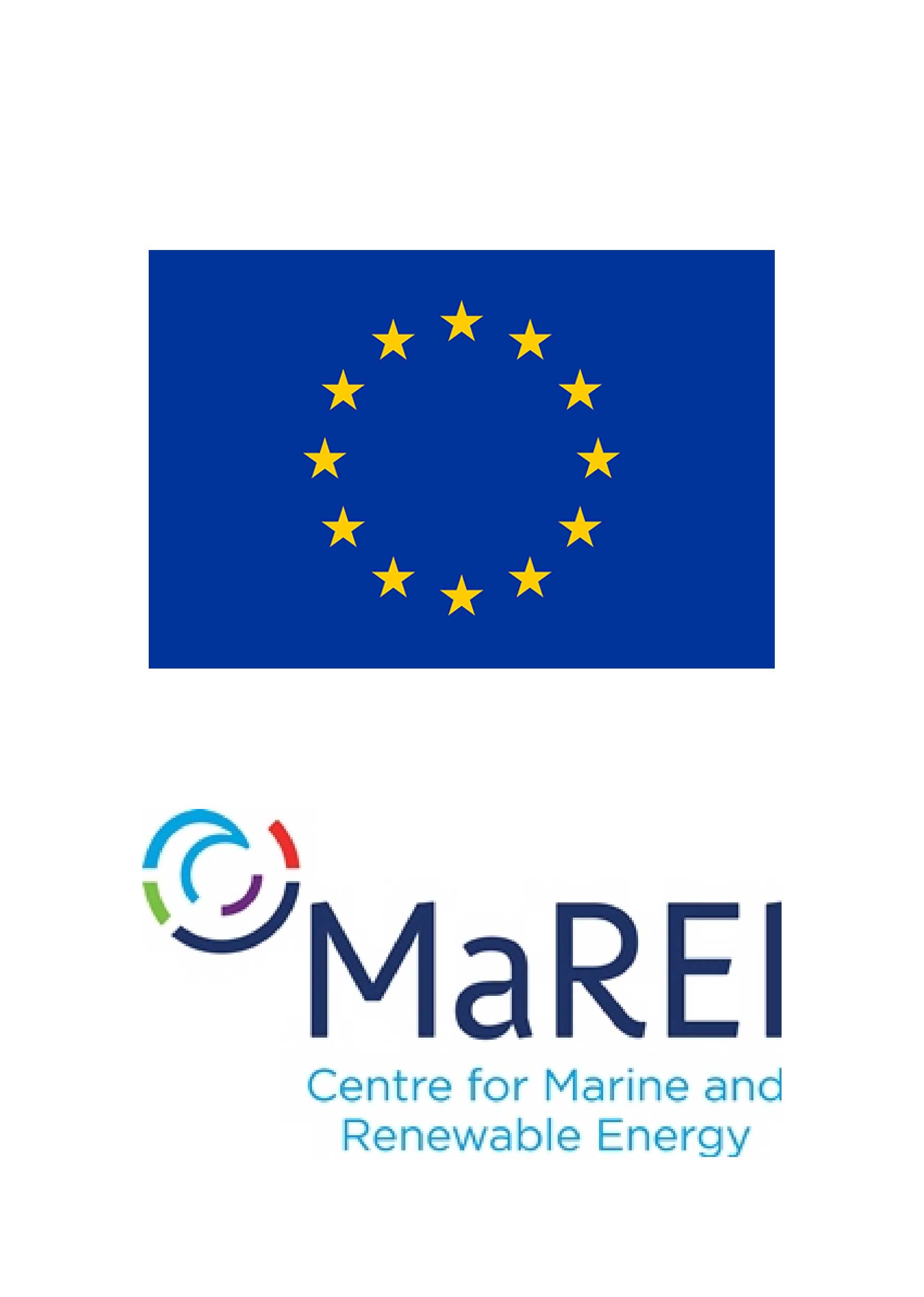

RAGES OUTPUTS:
Policy Briefs:
Policy Brief on Governance Analysis
Policy Brief on Standard Operating Procedure for Risk-Based Management
Policy Brief on Reccommendations for Regional Implementation
Technical Documents:
Governance and Risk
O’Higgins, T., Verling, E. and Cronin, R., (2019). Analysis of national, regional and EU MSFD institutions and governance structures, challenges and opportunities for a Risk-Based-Approach in the North East Atlantic. RAGES Deliverable 2.2.
Application to Non-Indigenous Species
Bartilotti, C., Canning-Clode, J., Carbonell, A., Cardoso, I., Carreira, G., Chainho, P., Gaudêncio, M. J., Gizzi, F.; Lobo Arteaga, J., Macedo, J., Massé, C., Monteiro, J., Png-Gonzalez, L., Tuaty-Guerra, M., Zaragoza, N. (2020a). WP3 Application of Risk-Based Approach to Non-Indigenous Species (Descriptor 2). Project RAGES: Risk-Based Approaches to Good Environmental Status. EU Grant Agreement No. 110661/2018/794607/SUB/ENV.C.2. Deliverable 3.1 - Sub-regional data of non-indigenous species, 13 p + 2 annexes.
Bartilotti, C., Brignon, J.M, Bartilotti, C., Cardoso, I., Carreira, G., Chainho, P., Chapon, V., Gaudêncio, M. J., Gizzi, F., Hollatz, C., Lobo Arteaga, J., Macedo, J. Monteiro, J., Tuaty-Guerra, M. (2020b). WP3 Application of Risk-Based Approach to Non-Indigenous Species (Descriptor 2). Project RAGES: Risk-Based Approaches to Good Environmental Status. EU Grant Agreement No. 110661/2018/794607/SUB/ENV.C.2. Deliverable 3.2 - Shortlist of regional specific criteria elements and integration rules, 29p.
Bartilotti, C., Brignon, J.M, Bartilotti, C., Cardoso, I., Carreira, G., Chainho, P., Chapon, V.; Gaudêncio, M. J., Gizzi, F., Hollatz, C.; Lobo Arteaga, J., Macedo, J. Monteiro, J., Tuaty-Guerra, M. (2020c). WP3 Application of Risk-Based Approach to Non-Indigenous Species (Descriptor 2). Project RAGES: Risk-Based Approaches to Good Environmental Status. EU Grant Agreement No. 110661/2018/794607/SUB/ENV.C.2. Deliverable 3.3 – Report on risk criteria and significance levels (version 2), 29p + 1 annex.
Hollatz, C., Brignon, J.M, Bartilotti, C., Chapon, V., Bartilotti, C., Tuaty-Guerra, M., Lobo Arteaga, J., Cardoso, I., Chainho, P., Gizzi, F., Monteiro, J., Macedo, J., Gaudêncio, M. J., Canning-Clode, J., Carreira, G. (2021a). WP3 Application of Risk-Based Approach to Non-Indigenous Species (Descriptor 2). Project RAGES: Risk-Based Approaches to Good Environmental Status. EU Grant Agreement No. 110661/2018/794607/SUB/ENV.C.2. Deliverable 3.4 - Sub-regional risk assessment for Descriptor 2, p. 81p + 2 annexes.
Hollatz, C., Bartilotti, C., Tuaty-Guerra, M., Lobo Arteaga, Gizzi, F., Brignon, J.M., Chapon, V., Cardoso, I., Chainho, P., Monteiro, J., Macedo, J., Gaudêncio, M. J., Canning-Clode, J., Carreira, G. (2021b). WP3 Application of Risk-Based Approach to Non-Indigenous Species (Descriptor 2). Project RAGES: Risk-Based Approaches to Good Environmental Status. EU Grant Agreement No. 110661/2018/794607/SUB/ENV.C.2. Deliverable 3.5 - Report coordinated sub-regional approaches to risk management and recommendations for sub-regional monitoring and measures
Application to Underwater Noise
Verling E, Miralles R, Bou-Cabo M, Martinéz GL, Garagouni M, O’Higgins T. (2021a). Applying the RAGES Risk-Based Approach to MSFD Descriptor 11 of the MSFD. Risk Based Approaches to Good Environmental Status (RAGES) Project Deliverable 4.1, 4.2, 4.3, 4.4. 44 pp. www.msfd.eu/rages
Verling, E., Guerra, M.T., Hollatz, C., Bartilotti, C. and O’Higgins, T. (2021b). Risk management, common targets and coordinated measures for Descriptor 11 of the MSFD. Risk-Based Approaches to Good Environmental Status (RAGES) Project Deliverable 4.5. 14 pp.
Silva, M.A., Cascão, I., Romagosa, M., Soares C., Jesus, S.M. (2021). The Azores case study: comparing risk analyses based on shipping density and acoustic modelling. Report to RAGES Project – WP4: Applying the RAGES Risk-Based Approach to MSFD Descriptor 11, Underwater Noise, 15 pp + 1 annex.
Standardisation and regional harmonisation
Ducommun L, Brignon J-M, Verling E and O’Higgins T. (2021). Standard Operating Procedure for implementation of risk-based methodology. Risk-Based Approaches to Good Environmental Status Deliverable 5.1. 17 pp
O’Higgins T, Guerra MT, Bartilotti C, Hollatz, C, Brignon, J-M and Verling, E. (2021). Recommendations for Joint implementation of a Risk-based Approach to Good Environmental Status. Risk-Based Approaches to Good Environmental Status (RAGES) Project Deliverable 5.2. 13pp
